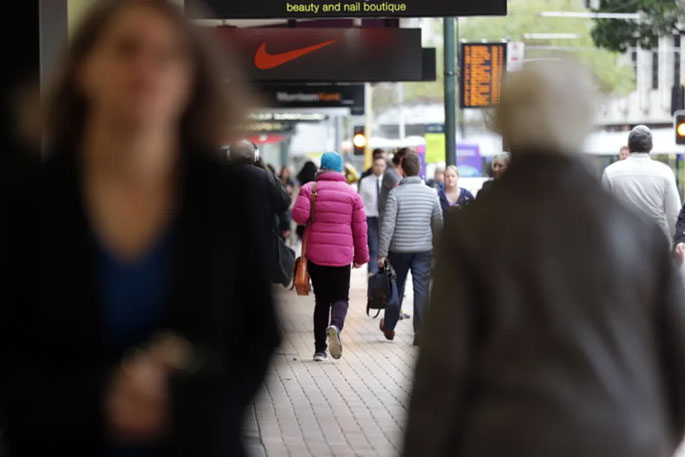The economy has edged out of recession, driven by service industries and energy production, but economists warn there is little cause for celebration.
Stats NZ data shows gross domestic product - the broad measure of economic growth - rose 0.2 per cent for the three months ended March, with annual growth of 0.3 per cent.
The numbers are stronger than economists have expected and follow two quarters of contraction.
"There were a range of results at industry level with eight of the 16 industries rising this quarter," says Stats NZ's Ruvani Ratnayake.
The main contributors to the gain are rental, hiring and real estate services, and increased electricity generation, but there's also a slight lift in retailing.
The biggest falls are in construction, business services and manufacturing, which is partly offset by increased dairy exports.
The growth in population resulted in each individual's share of the economy shrinking 0.3 per cent during the quarter, the sixth consecutive quarterly fall. Annually, the per capita decline is 2.4 per cent.
Household spending rose 1.6 per cent for the quarter, with evidence that consumers are buying from cheap online retailers.
Government spending is marginally lower, while the "unallocated" category, which includes such items as duties on imports, also boosted the final figure.
Real gross national disposable income, a measure of the country's purchasing power, rose 0.9 per cent for the quarter, but is still one per cent lower than a year ago.
Economy still weak, no rate cuts soon - economists
Economists are unexcited by the data, which they say showed a soggy, weak economy.
"Digging into the details highlights that today's number is another weak outturn by any stretch of the imagination," says ASB senior economist Kim Mundy.
She says the the Reserve Bank's high interest rates policy to get inflation under control has been the chief cause of the economic downturn and recessionary periods.
"With monetary policy set to remain restrictive, we don't think that story is going to change soon."
Westpac senior economist Michael Gordon says the economy is essentially little changed and data for the June quarter offers no relief.
"We expect growth to remain minimal over the course of this year, and indeed recent indicators suggest that the June quarter is shaping up to be quite soft."
ASB's Mundy says RBNZ interest rate cuts will be needed to help lift the economy, but she did not think that will happen while stubborn inflation persisted.
"We continue to expect OCR (official cash rate) cuts from early 2025 by when we expect the RBNZ will have enough evidence that a weaker economic backdrop and importantly a looser labour market will flow through to inflation settling sustainably around the midpoint of the 1-3 per cent inflation target range."
Labour's fault - Willis
Finance Minister Nicola Willis lays the blame for the downturn and state of the economy at the previous Labour government's door.
"While today's data is technically in the positive, it remains a reminder of the reckless spending and economic mismanagement of the previous government."
"New Zealanders are feeling the long shadow of a prolonged period of high inflation, with high interest rates contributing to a deeper and more persistent downturn than previously forecast."
She says the economy will pick up and the government will work to rebuild the economy.
"While it's hard to see through the immediate conditions, Treasury's Budget forecasts pointed to improvement from the second half of this year, with inflation coming under control, interest rates dropping and growth recovering."
New Zealand first-quarter growth is better than Australia, but lagged that of most of the country's major trading partners.
-RNZ.



0 comments
Leave a Comment
You must be logged in to make a comment.